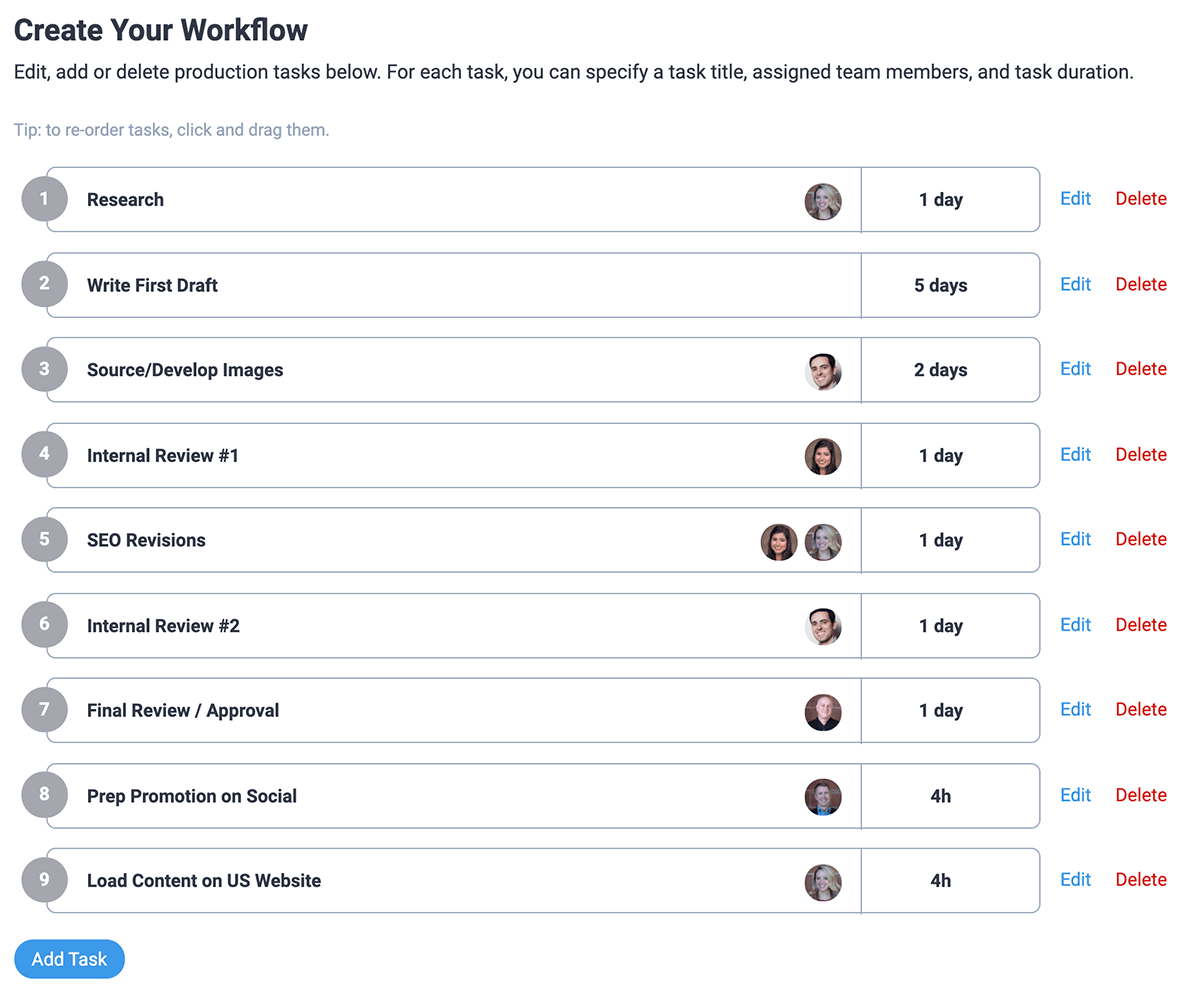We have entered the age of the gig economy, where independent contractors and freelancers are more prevalent than ever before. Marketing teams and organizations, more than most others, rely on reaching beyond their internal resources to produce high-quality work on time.
Getting it right with content marketing requires a wide range of expertise. Depending on the extent of your strategy, you might need input from writers, editors, analysts, social media specialists, influencers, SEO gurus, designers, programmers and more.
Unless you work at a very large business (and even then in many cases), there’s a good chance you’re enlisting freelancers, contractors or agencies to fulfill some of these key roles. This can be problematic when it comes to collaborating and getting everyone on the same page.
Many organizations are successfully using DivvyHQ for cohesive content collaboration with remote workers and partners.
Today we’ll break down some ways in which the platform helps with this increasingly crucial initiative.
Remote Control: Centrally Coordinating Your Content Collaboration in DivvyHQ
It’s hard enough to make sure coworkers in the same building are aligned on strategy and processes. Accomplishing this with freelancers and contractors, who might have limited experience with your team and your brand, can be all the more daunting.
If you have an ongoing engagement with an agency, they might have a better understanding of your internal workings, but on a day-to-day basis it’s still extremely difficult to sync up with a completely different organization on timely deliverables.
Enter: DivvyHQ.
With central visibility, shared calendars, formalized workflows, customizable user roles/permissions and other features, our content marketing platform is ideal for helping distributed teams stay focused and harmonized. Let’s take a deeper look at how you can take advantage of these content collaboration functions in DivvyHQ to keep your marketing engine running smoothly.
Single Source of Truth
We use this phrase a lot. In fact, many people use this phrase a lot, to the point where it’s become a little hackneyed. But I’m going to use it anyway because it really does accurately describe one of the core benefits of using DivvyHQ — especially with regards to our current discussion.
When any user logs into DivvyHQ, they can view shared content calendars to which they have access (more on that in a minute), as well as details on content items, attachments, tasks and more. In this way, a freelancer from Florida can quickly understand the current state and needs of a project just as someone in the Oregon-based office can. A contractor in Brazil can log in and see what they’re personally responsible for, and when it’s due, without playing phone tag or repeatedly emailing the content manager in Canada.
Being able to autonomously and instantaneously access these important details is critical to keeping group-based projects on track and eliminating missed deadlines.
Templated Workflows
Every company, and person, has their own style of working. But when you’re inviting an outsider to assist with your content production, it’s often helpful if they can adapt to your organization’s processes. In DivvyHQ, you can build workflow templates that automatically populate in your editorial calendar.
This is a simple way to get contributors from any location adhering to the same timeline structures, which can be a real difficulty in these scenarios.
You can also create content templates for the types of content you commonly create, making it easier for an external partner to get started and maintain formatting consistency.
Customizable User Roles and Permissions
Of course, one of the problems with letting freelancers or contractors into your content marketing platform is that you don’t necessarily want them having access to everything. This is where user roles and permissions come in handy. They enable a content manager to determine exactly which elements a particular user can see and edit.
Click here for a full breakdown of user roles, but here’s the high-level view:
- Global Administrators: The top dog. Full access and control over the account.
- Billing Admins: Specialized role for individuals in charge of account billing.
- Editors: Full administrative rights for managing calendars and all associated content to which they are assigned.
- Contributors: Can view and edit certain content projects and tasks, but lack broader admin capabilities.
- Internal Reviewers or External Reviewer: All about visibility, without editing privileges. An IR can see all items on a calendar they have access to; an ER can only see the specific content items they’ve been assigned.
Most often, a freelancer or contractor will either have Contributor or External Reviewer permissions, and your Editor or Admin can easily manage these settings.
All in One, One for All
DivvyHQ brings all of your team members — both internal and external — together in the same central hub for content collaboration, while providing the necessary tools to divvy up roles and permissions so everyone is accessing only what they need.
As freelancers, remote contractors and agency partners become more common, these capabilities grow all the more essential for high-volume content teams. Explore the collaborative functionality of DivvyHQ for yourself with a two-week trial.
